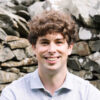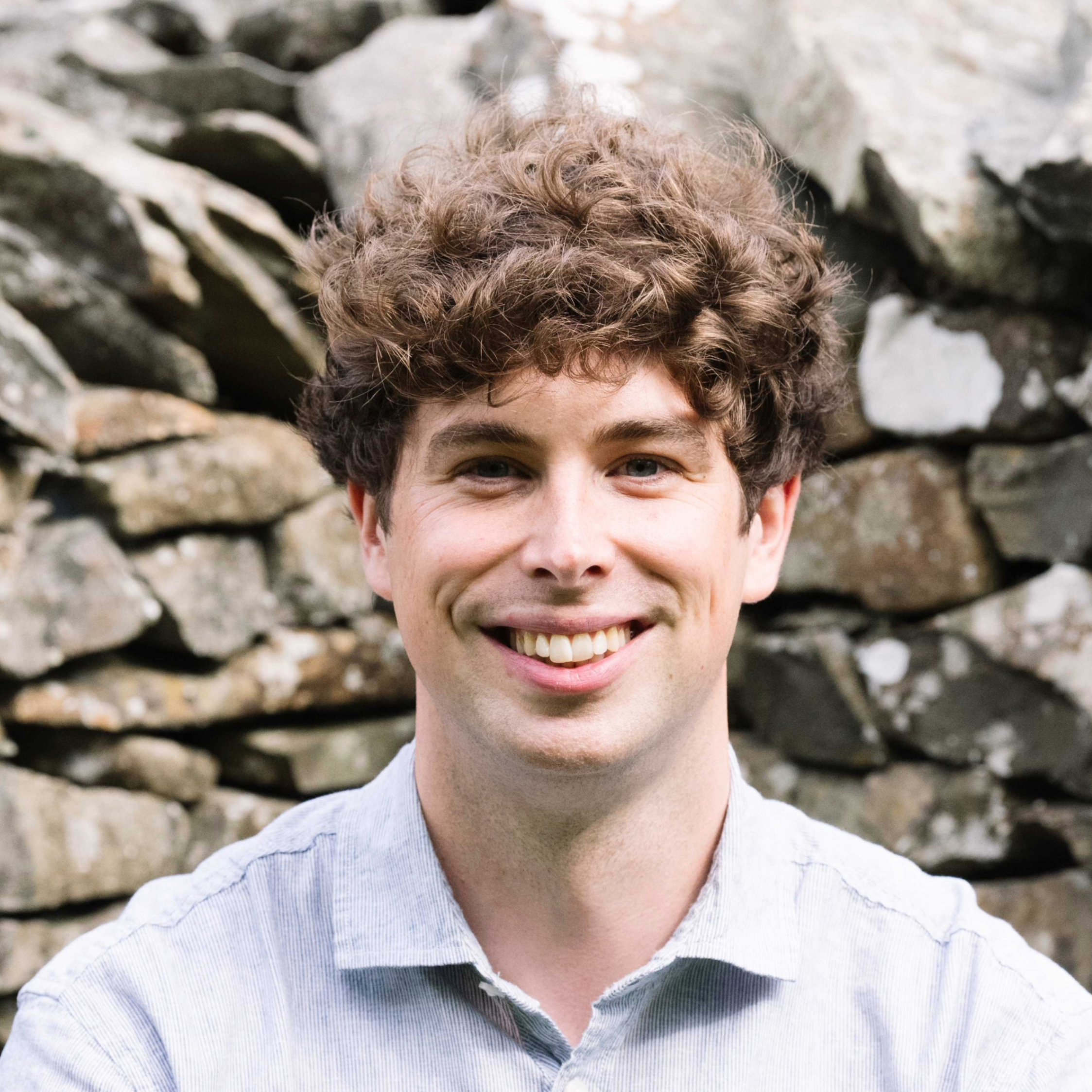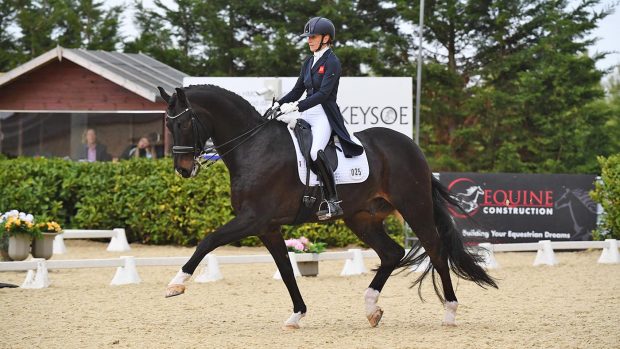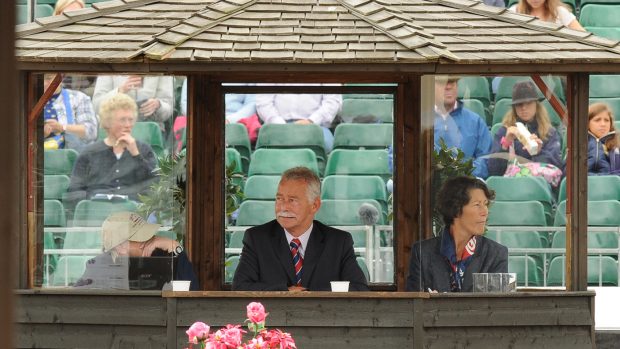Stephen Clarke, renowned trainer and five-star international judge, has recently been working with Swedish classical groundwork specialist Charlotte Wittbom, a former student of Luis Valença in Portugal.
Charlotte helps Stephen’s clients through groundwork, while he mentors her in applying classical methods to competition success.
The pair recently recorded a podcast discussing Stephen’s life, career, and the people who shaped his journey.
“I grew up in a little Welsh village – my father was the local policeman – and we had a lovely home next to a farm where the farmer kept Welsh Mountain ponies,” Stephen explains.
“I was fascinated by them. It turned out that if you could stay on without getting bucked off, you were allowed to take them to some shows. That’s how it all started.
“I then went to the Flint and Denbigh branch of the Pony Club, which was very well organised. The late Dorothy Johnson used to come and instruct there, and she became a lifelong mentor to me.”
Which coach stands out for Stephen Clarke?
On the coach who shaped him the most when it comes to his dressage career, Stephen picks out Jennie Loriston-Clarke.
“I used to be a competition rider for the Wirral Riding Centre,” he says. “It was a training centre for international students preparing for their BHS exams, and we – the competition riders – were the shop window.
“Each year, the FBHS examinations were held at Stoneleigh, and we were expected to take trained grand prix-level horses to be used as guinea pigs for the ridden tests.
“I’d take one of my older horses, Red Devil, and Jennie always brought a couple of hers, too – and we just hit it off.
“I also had with me my up-and-coming grand prix horse, Ulysses. Jennie spotted him and said, ‘Why don’t you come to me for the weekend and bring some horses?’
“She’d just come back from the Olympic Games in Montreal, and she let me gain test experience on her horses, Kadett, and Dutch Courage, and helped me with Ulysses – a lot.
“Then she decided, ‘Why don’t you go to Vienna for the winter to train with the Spanish Riding School?’” Stephen recalls.
“Ernst Bachinger, who was the chief rider at the time and had also trained the British team, came to watch one of my training sessions in England. He liked Ulysses and invited me over.”
Training with the Spanish Riding School’s chief rider
Stephen ended up spending two winters at Bachinger’s private stables just outside Vienna. In exchange for training with his grand prix horse, he worked with the young horses and some of the more challenging ones.
“It was the most wonderful experience,” he says. “That’s where I learnt the most about in-hand work.
“One of my jobs was to stand at the horse’s head, keep it straight, and allow it to cover as much ground as Herr Bachinger wanted.
“But if I let the horse get crooked, or stopped it from moving forward, he’d shout at me.
“I learnt very quickly how subtle the work had to be. He was a complete artist. Understanding when to control, when to soften, when to reward – it gave me a real feel for the detail.”
From there, Stephen was awarded a scholarship to train with Ferdi Eilberg, who had recently moved to Britain from Germany. Stephen describes Ferdi as a perfectionist, much like Ernst Bachinger.
“I used to dread the words, ‘Come down the centre line and halt at X,’” he laughs. “If you didn’t get it right the first time, you’d be doing it the whole session.”
What made Stephen Clarke raise his game?
Although much of his focus remained on training at home, Stephen adds that competing – and later judging – internationally also had a transformative effect on both his riding and his approach to training.
“I think when you’re exposed to the warm-up arena with high-level, famous riders, it can be a bit nerve-wracking,” he admits. “But actually, it’s in those environments that I raised my game the most.”
He describes how, in those days, opportunities to observe elite competition were rare, which made those moments all the more valuable.
“We were far more isolated, which is why I loved going to the top competitions.
“Whenever I’d come home and train the working pupils, I’d be quite tough on them, and they’d roll their eyes and say, ‘Oh God, he’s been to Aachen again’,” he adds with a laugh.
Not all of Stephen’s horses were straightforward. “The one-time changes were always a challenge,” he says.
He recalls one transformative warm-up ring encounter: “David Hunt cantered over. He’s always very funny – a little bit sarcastic – and he looked at me and said, ‘What are you doing?’ I explained, and he just said, ‘Maybe your canter’s not good enough?’
“So we worked on improving the activity of the canter in the collection, and as if by magic, the changes became easy – that was one of my biggest lessons.”
A turning point in knowledge sharing
Stephen also credits Lady Joicey’s Trainers Scheme as a turning point in how knowledge was shared in British dressage.
“She set up this group, and we’d travel to some of the big international shows together, share hotels, and spend hours watching the warm-ups,” he recalls.
“It brought experienced trainers together in a constructive way. Rather than being in separate camps, we became friends. It was a fantastic way to develop a shared training philosophy in this country.
“The whole game is really a continual learning process – and it’s fascinating to watch people develop.”
Listen to the full podcast here.
- To stay up to date with all the breaking news from major shows throughout 2025, subscribe to the Horse & Hound website
You may also be interested in:

‘You don’t need it all by 22 – just keep showing up’: Gareth Hughes on the reality of making it in dressage and advice for the next generation

‘You never stop progressing’: Richard White on injury, inspiration and making his grand prix debut in his 60s

Horse & Hound’s helpful guide to becoming a dressage judge

Subscribe to Horse & Hound magazine today – and enjoy unlimited website access all year round






